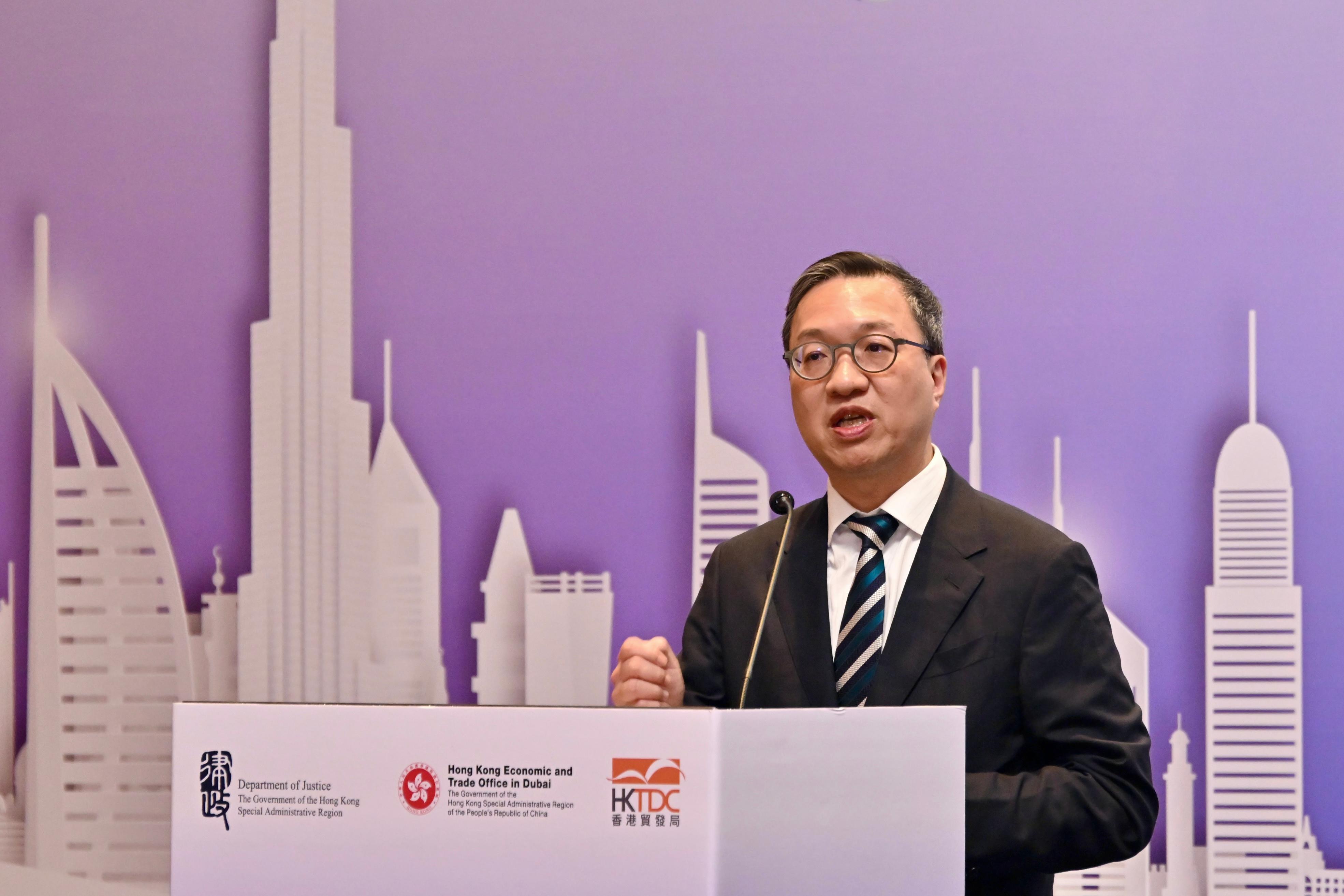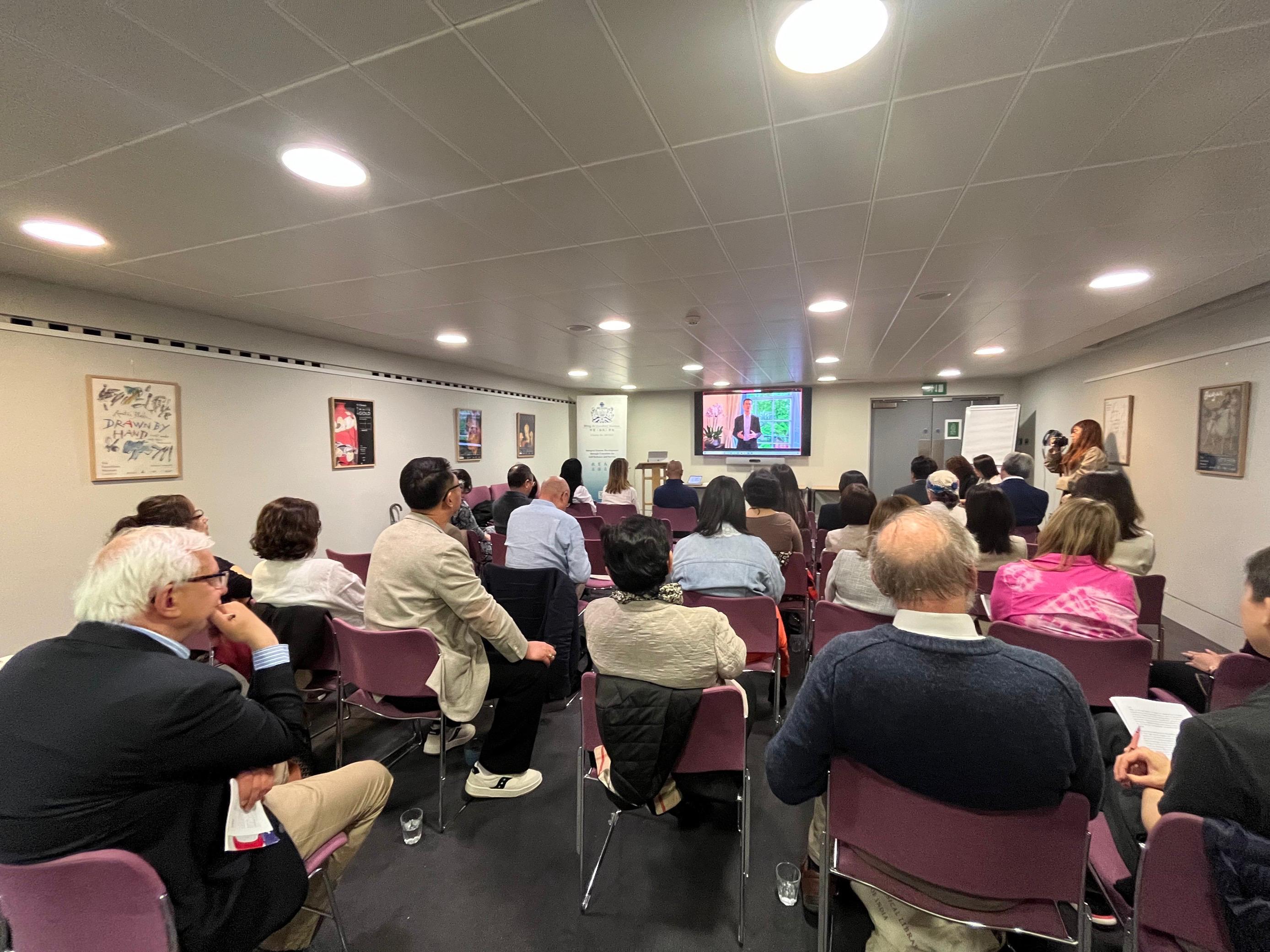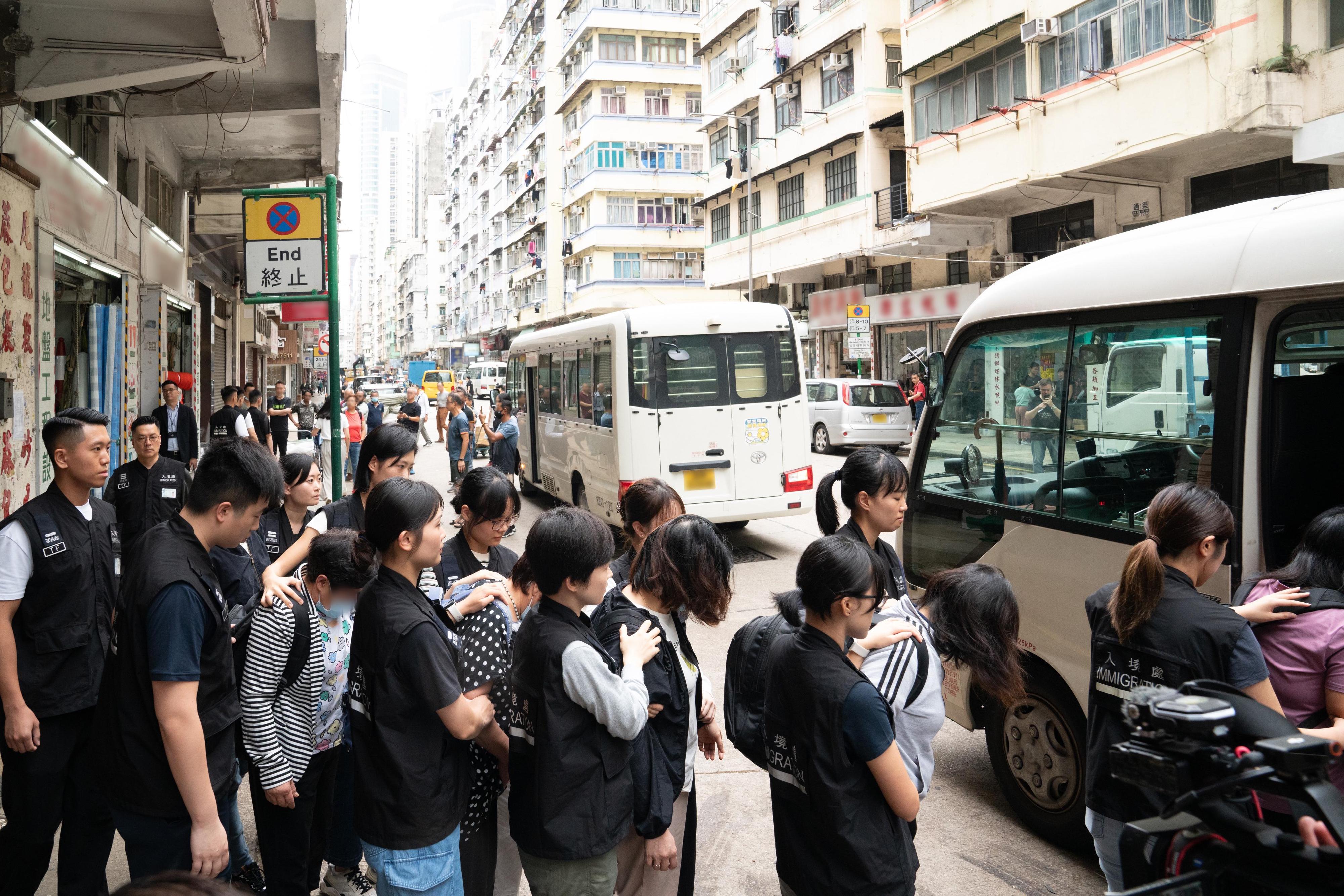Speech by SJ at networking luncheon of forum titled Hong Kong – The Common Law Gateway for UAE Businesses to China and Beyond in Dubai, UAE (English only) (with photo)
Following is the keynote speech by the Secretary for Justice, Mr Paul Lam, SC, at the networking luncheon of the forum titled Hong Kong – The Common Law Gateway for UAE Businesses to China and Beyond in Dubai, the United Arab Emirates (UAE), today (May 22, Dubai time):
Distinguished guests, ladies and gentlemen,
I am sure that you have heard a lot of things about Hong Kong this morning in various sessions. And I find it extremely difficult for me to find something that have not been covered or mentioned by the speakers for the purpose of, so to speak, the keynote speech. So what I propose to do is, and I hope you would accept my apology for, repeating some of the things that have been said by my learned friends who have spoken to you this morning. I wish to do a summary to present various points in a slightly different way.
I wish to go back to the theme of this forum: Hong Kong – The Common Law Gateway for UAE Businesses to China and Beyond. I described this morning the “gateway” as a very fast, very convenient, very friendly way that can take you from the UAE to China and beyond with their service stations making sure that your journey is very pleasant. But I am sure you will have this impression – Hong Kong obviously is a gateway, but it is not the only gateway that can take you from the UAE to China and beyond. Even I emphasise that the gateway is marked by the common law character, you may also have this question in mind, that is Hong Kong is not the only common law gateway to China. For example, friends from Singapore definitely would say that they also have the common law gateway to China and beyond. So why should you choose Hong Kong as the gateway instead of other gateways, including gateways also marked by common law? That is the big question that I think we need to address. My principle is that, the choice is always yours. You have numerous options, but the thing is we have to make an informed choice. The point that I would impress upon you is that it would be a very wise choice for you to choose Hong Kong. It is because our common law system is different from other common law systems, at least because it bears five important characteristics that cannot be found elsewhere. I wish to take you through this five characteristics very quickly.
Stability
The first characteristic is that the Hong Kong legal system is very stable. I said this morning that Hong Kong is very special in the sense that it is the only common law jurisdiction within China. And the reason is that we have the fundamental principle – the Central Authorities decided to implement the principle “one country, two systems” in Hong Kong. There is obviously a historical reason for this principle. I am sure that you are aware of the fact that Hong Kong used to be ruled by the British for more than 100 years, since 1842 until the end of June 1997. And during this more than a century time, Hong Kong has developed a very mature and reputable common law system. And in order to ensure that the resumption of sovereignty over Hong Kong on July 1, 1997, would be peaceful, orderly and in the interest of the long term prosperity and stability of Hong Kong, the Chinese Government decided the principle. But it is more than a political principle, because this fundamental principle which guaranteed the maintenance of common law system in Hong Kong, is actually written in a very important constitutional document governing Hong Kong. That is the Basic Law of Hong Kong, which is promulgated pursuant to the Chinese Constitution. The significance is that this is a policy entrenched in the constitutional order. It is something that is going to be there indefinitely. In fact, President Xi Jinping of China had said in Hong Kong and elsewhere on many occasions in recent years, that principle of “one country, two systems” is a good policy that has to be maintained in the long run. I believe that certainty is of crucial importance when you consider where you should go to explore the business opportunities, whose service you would use. So the Hong Kong common law system has the certainty that you would require.
Trustworthy
The second characteristic is that the Hong Kong legal system is very trustworthy. My learned friends this morning have been referring to various features of our judicial legal system. And one thing that I wish to repeat is that we enjoy the independent power of adjudication, and the independent power of final adjudication. I wish to emphasise the word “independent”. It is guaranteed by the constitutional document, the Basic Law. Our judges are appointed independently by an independent commission consisting of members from the Judiciary, from the private sector, from the two legal professional bodies. So the Government does not freely decide on who should be judges.
I also offer two pieces of evidence to highlight the independence of the Judiciary, to highlight the reputation that Hong Kong Judiciary has enjoyed.
First, there’s a well-known Rule of Law Index, known as the World Justice Project Rule of Law Index. Hong Kong ranks 23rd out of around 140 jurisdictions around the world in the latest survey in 2023. It is telling. I do not mean to make a comparison although it is a comparison. Hong Kong ranked ahead of the United States and some European countries.
The second piece of evidence touched upon a point that was mentioned by Dr Christopher To (Chairperson of the Hong Kong Mediation Council) this morning and also I have mentioned very briefly, that is in our Court of Final Appeal, which is the final court of Hong Kong, there are now ten judges sitting as part-time judges. They are coming from different jurisdictions, such as the United Kingdom, Australia and Canada. What does that mean? What is the significance of that presence? You have to remember that they are retired judges. They don’t come to Hong Kong because of the amount we pay for them. They don’t come to Hong Kong because they need to earn a different, higher reputation, because they are already the giants in the common law world. They decided that they are willing to come to Hong Kong for only one conceivable reason. That is, they have trust and confidence in our judicial system and they are very willing to be associated with our system. They are very willing to contribute to our system. I think these are very potent evidence supporting our independent judiciary and its high reputation.
Apart from the Judiciary, our legal profession is a legal profession of integrity and ability. You have heard a number of legal practitioners practicing in Hong Kong, coming from or specialising in different areas. And one thing that offers our professionals a unique advantage is that many of us are bilingual. It is not just about the language. The more important thing is that, on the one hand, we have very rich international legal experience, or very experienced in handling international civil and commercial transactions. On the other hand, living in Hong Kong, as a part of China, we are extremely familiar with the Chinese culture and how things are done in China as whole. I think this is also a very important advantage offered by Hong Kong.
As for quality, Hong Kong is a relatively small place consisting of 7.5 million people, but we have three very top law schools in the world – the University of Hong Kong, where I studied almost three decades ago, ranks 20-something in the whole world. This is quite an achievement.
Business-friendly
The third point is that the Hong Kong legal system is very business friendly. Our common law, in particular civil and commercial law, is modelled on the British statutes. So the content is very familiar with international business community. And once again, I wish to give you a piece of evidence supporting the status of our commercial law. According to the World Competitiveness Yearbook compiled by the International Institute for Management Development in 2023, in relation to business legislation, that is Business Law, Hong Kong ranks the first in the whole world. That the quality of our business law is really the top, literally the top. And when it comes to tax policy and other things, such as government efficiency, we ranks among the top five in the world. I am not making some self-serving statements. These are recognition given by the international community to our legal service.
Of course, there is no room for complacency. That’s why we are updating our law regularly. One example is that last year, in order to keep pace with the development of the family office in Hong Kong, a statute called the Inland Revenue (Amendment) (Tax Concessions for Family-owned Investment Holding Vehicles) Ordinance came into operation. The point is we make great efforts to ensure that our legal framework will match with development in different areas to meet the demands of society. And of course, when it comes to dispute resolution, you have heard this morning that Hong Kong’s arbitration is one of the most preferred seats of arbitration around the world. We always rank among the top class. We must be one of the top three or top five.
Security
The fourth characteristics is security. Security in the sense that your money will be very safe in Hong Kong. Firstly, I have to refer to the Basic Law again, because in the Basic Law, we guarantee free flow of capital, so money can come into Hong Kong and can leave Hong Kong freely. There is no exchange control, no expropriation at the discretion of the Government. We have a very stable currency packed with the US dollar. So free flow of capital, while we welcome you putting money in Hong Kong, you can take your money at any time you wish. And during the period of your money is in Hong Kong or your business in Hong Kong, it is completely safe. It is because we have a very mature regulatory framework based on various piece of legislation to ensure the malpractices, misconducted or other sorts of illegal behaviour will not be tolerated and will be sanctioned very strictly. For example, we have the Securities and Futures Commission overseeing the market behaviour, the Hong Kong Stock Exchange, of course, is updating its regulation regularly to ensure that there would be a fair level playing field for investors coming in Hong Kong. And in Hong Kong, all these regulations are enforced strictly, without any bias, without any favour to any party.
Again, I wish to give you another piece of evidence. Hong Kong is one of the cleanest jurisdictions in the world. Corruption or malpractice is never an issue in my jurisdiction. Hong Kong actually ranks 14th out of 100 jurisdictions around the world in the Corruption Perceptions Index, conducted by Transparency International in 2023. Once again, it is a recognition given by the international community to Hong Kong.
Dual Connectivity
The last characteristic is that Hong Kong provides good connection to China and beyond. I said earlier on that one of the unique features of Hong Kong is that we have a common law system, which is different from the civil law system in China. But there are very important connections linking these two legal systems together which are not found elsewhere. For example, you heard this morning that we have entered into some mutual legal assistance arrangements between the Mainland and Hong Kong to enable both civil and commercial judgments and also arbitral awards to be recognised and enforced in these two jurisdictions, so the reciprocal arrangements. This sort of very special arrangement is unique to Hong Kong which you cannot find in other common law jurisdictions, say for example Singapore.
The other thing that I wish to emphasise is that I talked about the gateway to China. I wish to be more specific because I wish to say a few words about the Greater Bay Area. The concept of Greater Bay Area is of great significance, not just to China but to my friends overseas. It is part and parcel of the national development plan of China. And this area is always described as the pioneer of various initiatives of China in terms of innovation, technology, and in terms of various different other matters. So it is really the laboratories for very proactive and innovative measures in China, always started in the Greater Bay Area. The size of Greater Bay Area is almost like Croatia, a European country. The population of the Greater Bay Area is around 86 million, similar to Germany, slightly larger than Germany. The GDP of the Greater Bay Area is similar to that of Canada. So I give you some ideas as to what we are talking about. This Greater Bay Area is of great significance to Hong Kong because Hong Kong is situated right at the centre of the Greater Bay Area. This area consists nine cities in Guangzhou Province, the Hong Kong Special Administrative Region and the Macao Special Administrative Region. So within one country, you have two systems and then three jurisdictions. This is very unique as compared to other bay areas in the world. Of course, we are not only talking about China. We can take you to other parts of the world by using Hong Kong as a platform that is largely because of the Belt and Road Initiative. Hong Kong being the most internationalised city in the world obviously stands at the very front line of the Belt and Road Initiative promulgated by the Central Government.
I think I spent long enough and I feel guilty for delaying your lunch, so I just wish to recap my five points. Why Hong Kong will be your wise choice? It is because the Hong Kong legal system is stable, trustworthy, business-friendly, secure and it provides good connections to China and beyond. There is an English saying: the proof of the pudding is in the eating. So what I would encourage you to do is to test whether what I just said is true or not by taking active steps to participate in Hong Kong in various ways, by considering to use Hong Kong as a platform to explore investment business opportunities. I’m sure we will not disappoint you. And you had my words. So that’s all I wish to say. Thank you very much.




